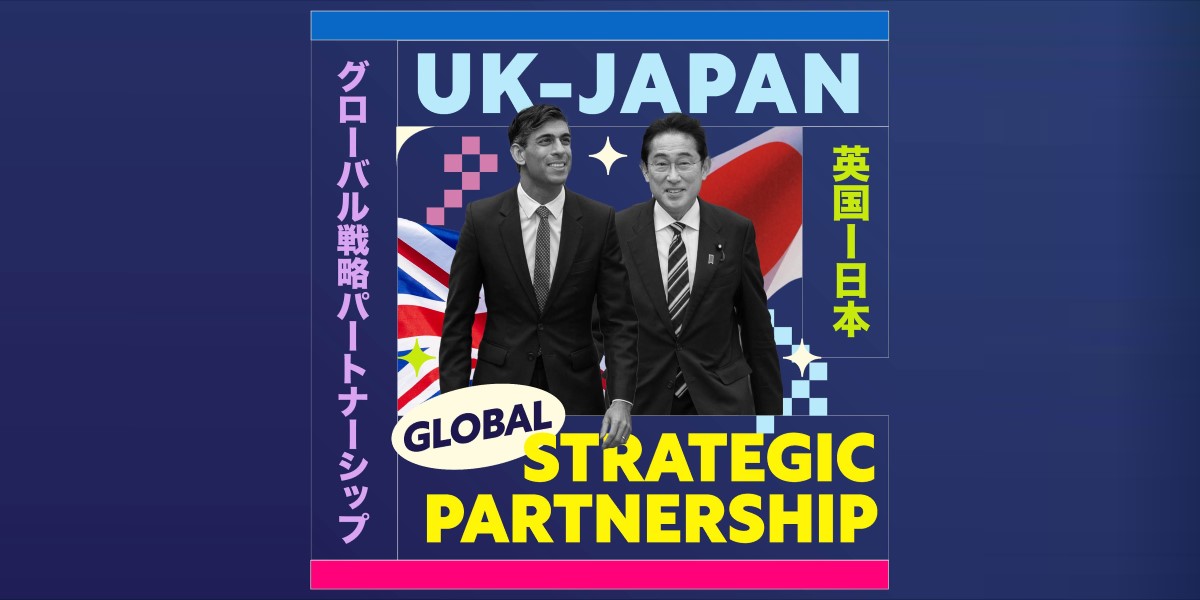UK And Japan Ink Agreement For Semiconductor And Security Cooperation

British prime minister Rishi Sunak and Japanese prime minister Fumio Kishida on Thursday signed the Hiroshima Accord – a document declaring a global strategic partnership between the two island nations.
Among its goals, the Accord vows to promote cooperation between the two countries on semiconductors and the emerging areas they support – namely AI and quantum.
It also states the duo will "explore ambitious joint research and development collaboration across semiconductor technologies, capitalising on … respective strengths including in chip design, advanced packaging, compound semiconductors and advanced materials." The two countries hope the accord will "improve semiconductor supply chain resilience, both through bilateral initiatives and international cooperation."
While semiconductors play a large role in the agreement, Japan and the UK also commit to "larger and more complex" joint security-related exercises and planning. The broad-ranging agreement includes cooperation on critical minerals and talent pipeline resilience, assisting with virtual asset maintenance, defence space cooperation, and a cyber partnership. In case that wasn't enough it also reaffirms joint climate goals.
Japan and the UK also pledge to promote "human-centric and trustworthy AI and interoperability between AI governance frameworks." This builds on existing efforts outlined in the UK-Japan Digital Partnership – including AI, telecoms diversification, and "efforts to operationalise Data Free Flow with Trust (DFFT)."
- Micron, Kyocera, Samsung bet billions on Japan chip plants
- US chipmakers don't want to be locked out of industry's biggest market: China
- UK PM Sunak plans to allocate just £1bn to semiconductor industry
- Tokyo has millions of surplus Wi-Fi access points that should be shared with blockchain, says NTT
The document takes a strong stance against Russia, North Korea and China. It states the two countries "share serious concerns over the situation in the East China Sea and the South China Sea, and strongly oppose unilateral attempts to change the status quo by force or coercion anywhere in the world."
And in case there was any ambiguity, it states the partners' position on Taiwan as remaining unchanged.
The accord describes the UK and Japan as the "closest of partners," calls the security and prosperity of the Euro-Atlantic and Indo-Pacific "inseparable" and vows to advance "the vision of a free and open Indo-Pacific."
"We share concern for and are strongly opposed to economic coercion and non-market policies and practices which distort the level playing field, and we commit to continue to work together to address such behaviours," states the document.
As tensions between the West and China have heightened recently, particularly in light of US economic sanctions, many eyes have turned to see Japan's response.
The nation recently reaffirmed its US alliance by joining a mulitnational chipmaking tech export crackdown, amid intense pressure by the US.
Private industry has already turned to Japan as an alternative location to Taiwan and Korea for manufacturing semiconductors and their equipment. Micron, Kyocera and Samsung are all investing billions in building or expanding chip-related facilities in the Land of the Rising Sun.
China's take on the accord, according to state media, is that the "historic" accord will bring "uncertainty" to the region.”
"From a military perspective, observers interpreted the accord as the UK's springboard to becoming more involved in the Asia-Pacific and a prologue to Japan's participation in AUKUS, bringing uncertainty and risks rather than any good to the region," thundered the Global Times.
"The UK eyes regular deployment of its warships in the Asia-Pacific, which would require access to Japan's military bases," it added. ®
From Chip War To Cloud War: The Next Frontier In Global Tech Competition
The global chip war, characterized by intense competition among nations and corporations for supremacy in semiconductor ... Read more
The High Stakes Of Tech Regulation: Security Risks And Market Dynamics
The influence of tech giants in the global economy continues to grow, raising crucial questions about how to balance sec... Read more
The Tyranny Of Instagram Interiors: Why It's Time To Break Free From Algorithm-Driven Aesthetics
Instagram has become a dominant force in shaping interior design trends, offering a seemingly endless stream of inspirat... Read more
The Data Crunch In AI: Strategies For Sustainability
Exploring solutions to the imminent exhaustion of internet data for AI training.As the artificial intelligence (AI) indu... Read more
Google Abandons Four-Year Effort To Remove Cookies From Chrome Browser
After four years of dedicated effort, Google has decided to abandon its plan to remove third-party cookies from its Chro... Read more
LinkedIn Embraces AI And Gamification To Drive User Engagement And Revenue
In an effort to tackle slowing revenue growth and enhance user engagement, LinkedIn is turning to artificial intelligenc... Read more

